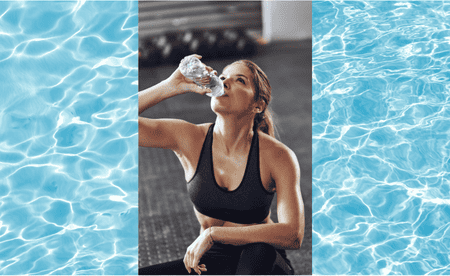Are you really hydrated?
Electrolytes are minerals that carry an electric charge. They’re found in your blood, muscles and other tissues, and they help regulate your body’s fluid balance. The most common electrolytes are sodium (Na+), potassium (K+) and chloride (Cl-).
In addition to helping regulate hydration levels, electrolytes play an important role in muscle contraction and nerve signaling by allowing electrical impulses to travel through the body efficiently. If you don’t get enough of them from food or drink–or if you sweat too much during exercise–you could experience symptoms such as fatigue or muscle cramps that make it harder for you to exercise effectively or even enjoy your workout at all!
What Are Electrolytes?
Electrolytes are minerals that carry an electric charge. They’re important for maintaining the balance of fluids in your body, and they also help regulate your heartbeat and muscle function. Electrolytes include sodium, potassium, magnesium and calcium–all of which you get from food or supplements.
There are two types: macro-electrolytes (which include sodium chloride) and micro-electrolytes (magnesium).
Macro-electrolytes are found in larger quantities in foods such as vegetables; micro-electrolytes can be found in smaller amounts throughout all foods but especially fruits and vegetables
How Electrolytes Help with Hydration
The role of electrolytes in water absorption is to help the body absorb water. Electrolytes are minerals that carry an electric charge, such as sodium and potassium. They’re found in foods such as fruits, vegetables and dairy products–and they’re also critical for maintaining a healthy blood pressure level.
In addition to helping you stay hydrated during exercise or hot weather conditions, electrolytes play an important role in other bodily functions.
For example, electrolyte balance helps regulate muscle contraction (including your heart) by allowing muscles to contract quickly when they need to move quickly If there aren’t enough electrolytes available then this process will be slowed down which could cause problems with digestion or muscle movement if it becomes severe enough.
Signs of Electrolyte Deficiency
If you’re experiencing any of the following symptoms, it’s likely that you need more electrolytes:
- Fatigue
- Dizziness
- Muscle cramps
- Dehydration (dry mouth, thirst) and headaches are also common signs of dehydration.
How to Get Enough Electrolytes
You can get electrolytes from food, but it’s not always easy to do so. If you’re eating a balanced diet that includes fruits and vegetables, you should be getting enough electrolytes without having to worry about supplementing them. But if you don’t have time to cook or don’t like eating fresh produce (or both), there are other options for getting the nutrients your body needs.
Sports drinks are one way to get extra electrolytes into your system when exercising or sweating heavily in hot weather–but they aren’t the only way!
Electrolyte supplements are another option for those who want an easy way of getting more sodium in their diets without having to eat too much salt throughout the day; however these supplements should only be used as directed by a doctor because an electrolyte supplement on top of a highly processed diet can result in health complications.
If you have questions about electrolytes be sure to ask myself or any coach on staff. Grab a spot inside our nutrition coaching services to learn more about electrolytes and your nutrition.
Brit Bailey, MSNHP, RDN,LDN






